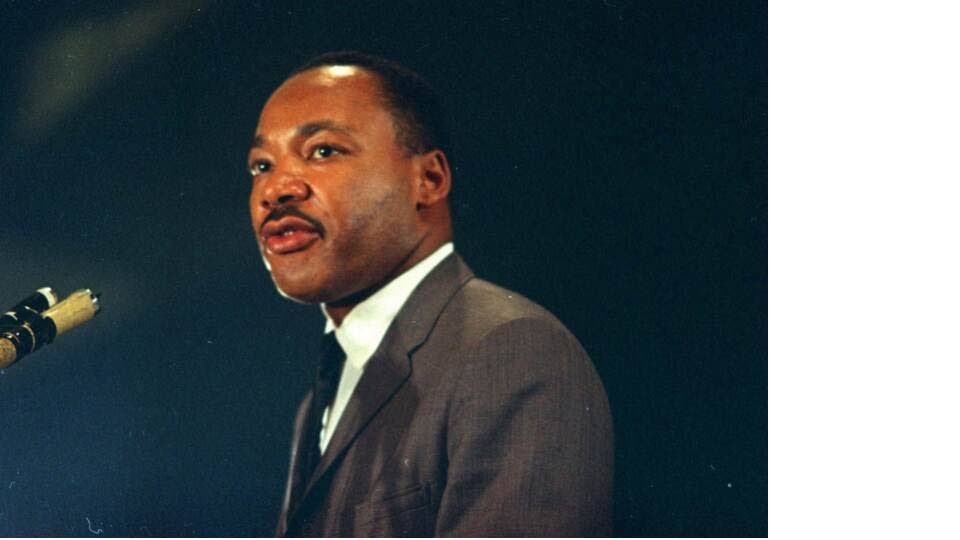Stalin's music for all times

Timeliness and timelessness are hallmarks of Stalin’s work.
He is one of those calypsonians who has stayed true to the tradition of the artiste mirroring events and struggles of society. He echoes the protests and the emotions expressed by many voices.
His audience identifies with his sentiments, and shares his contempt for bad government, regardless of who is in power. He is the oral auditor general, calling on the purse holders to account for bad spending, self-serving, and waste, while the ordinary people are suffering for “ah piece of action.”
As he pointedly demanded of Mr Divider, during the 1970s oil bloom: “Run something!”
A former limbo dancer and panman, Stalin, born Leroy Calliste, has been a cultural crusader for due financial recognition, respect, and reverence for the arts and artistes.
He has only scorn for the “part-time lover” of cultural expressions, and has himself consistently championed the cause of pan and the panman.
Identifying with the downtrodden, he is the no-nonsense, anti-polarising, voice for the “sufferers” of all races, who, he says, are too busy struggling for survival to find time for hate or to promote racial division.
Stalin vowed to “nah ease up” on politicians making racial appeals to divide the people.
Though he has been strong on the theme of unity, including Caribbean unity, he has steadfastly held aloft a banner clamouring for the dignity and progress of the black man and woman in the diaspora. He has urged them to persevere in efforts to raise themselves to a higher dimension.
Often himself called the Black Man, Stalin has long, long recognised that “black man don’t get nothing easy.” He is himself an example of what can be achieved through perseverance and struggle.

Having left primary school in standard four in San Fernando, he educated himself for the calypso journey. He bought a dictionary, learned to spell words and to appreciate their meanings.
Then he began writing lyrics for powerful, hard-hitting, soul-searching, thought-provoking songs. He embraced a mission to inspire his people with a sense of hope and positive vibrations.
Social conscience
A social conscience leads him to avoid the frivolity of writing “party songs,” when serious issues remain to be addressed. Wait, Dorothy, Wait, he says to her and others urging him to compose songs they could party to. Patience pays off, and when Stalin eventually “comes with it,” immediately a hot, and long-lasting, party hit is born (Black Man Feeling to Party).
The Black Stalin is also the warrior, employing calypso to celebrate the resistance of still-oppressed African peoples.
Sometimes a pessimist, he is wary of promises that “better days are coming.” At other times he is the optimist, counsellor, motivational voice of exhortation and hope, urging, "we can make it if we try," and encouraging us to "look on the bright side."
In yet another persona, he is the ultimate lover who writes a song for his lady love, and leaves it on the bed. In Black Man Feeling to Party, though, he reminds her to “make sure the children OK.”
The man for all seasons, Stalin is at once teaching, lecturing, admonishing, condemning (Bun Dem), consoling, celebrating, always tapping with precision, targeting into the moods of the moment.
The work of this versatile artiste also represents a historical record of the life and times in Trinidad and Tobago, the Caribbean, and the world. From an extensive volume of compositions, his lyrics can be categorised for study under several heads embodying a variety of themes. Prominent among them are his social and political commentaries.
The Black Stalin’s intellectual property encompasses musical estate of considerable intellectual dimensions. He has at times been irked by scholars who have sought to dissect his “texts” and come up with outlandish interpretations of his “theses.”
“More times, to the head hunters,” he would say.
Stalin’s brand stands out
Fast track soca-calypso products marketed with an Ash Wednesday expiry date have threatened to displace creativity in “protest” music.
Lyrics that rarely focus on any pertinent message have degenerated into repetitive simplicity, suited to a context marked by amplified sound and mindless bacchanalia.
Against this unpromising background, Stalin’s brand stands out. It lives on to depict a contemporary reality in which sometimes only the characters have changed but the plight, conditions, and the problems remain much the same.
Despite not releasing new works for a few years, and declining to sing in the tents, Stalin has remained relevant.
This is a critical accomplishment, in that his music can still speak for and to the present. Decades later, this prolific composer’s social and political commentaries will present a historical benchmark of TT’s progress or lack thereof. His work will afford an opportunity to conclude whether, despite material advancements and favourable economic indicators, it is not “de same old thing dey pushing."
All Stalin had earlier assailed repeat themselves in today’s TT, and the wider world. We remain a “nation of importers,” “Caribbean unity” is still a haphazard project, as observed when cheaper Venezuelan oil displaced traditional TT supply in the regional market.
At the height of another energy and construction boom, a “piece of the action” still remains the elusive dream of many who are now also faced with ever-rising food prices and ever-looming shortages:
Ah can’t get flour
and ah can’t get butter
and when ah get rice the thing so dear.
(Piece of the Action aka Run Something).
New World disorder
Always addressing world issues, Stalin has crafted some masterpieces. As “de all season man,” he took aim at slavery, capitalism, and other “isms.” He has referenced the struggles of Martin Luther King Jr in the US, paid tribute to Nelson Mandela of South Africa, exposed the pitfalls and deception of the various movements, debunking the “isms” some world leaders romanticise and revere.

Reflecting on the Grenada revolution, 1979-1983, he zeroed in on the chaos associated with the “isms” such as communism and socialism propagated internationally and in the Caribbean. He cited the oppressiveness of repressive governments, the violence they perpetrated and their penchant for investing in military and even nuclear power at the expense of the lives and the welfare of their peoples:
Got to stay way from them ism
All them ism is confusion
You must have a nuclear weapon
Just to hold on to your ism.
One ism with a gun telling you to vote
One saying doh vote with bomb at your throat
Dey saving all them arms and ammo for me
Dey selling dey wheat for they enemy
Got to stay way from them ism
All dem ism is just schism (Ism-Schism)
Ism-Schism, which was one of the two calypsoes (Wait Dorothy Wait) that won him the crown in 1985, still resonates today when at least two nations, Iran and North Korea, to the alarm of the rest of the world, have threatened to develop nuclear capability. Other “isms,” such as religious fundamentalism, continue to make the world a dangerous place.
Years after he first voiced it, the applicability of Stalin’s advice still hold, though some of the places and characters have changed.
In More Come he described the struggle for freedom in South Africa and the historical resistance of Africa’s people to colonisers and oppressors. In 1987, he offered to help St Peter “bun dem,” naming living and dead world figures responsible for havoc and misery on earth.
In his discourse on international affairs, in the calypso, Time, he is gloomy but precise as he reflects on the state of the world.
Boo-doom boo-doom boo-doom
Dey start dropping bomb
Rat-tat-tat-tat-tat
Dey shooting children down
Mothers bawling, children screaming
Fathers fighting while you resting
Wake up you sleepy head and help me bury mih dead
Oh God it dread, it dread, it dread.
Black Stalin could well have been referring to Georgia, Afghanistan, Iraq, Iran, Gaza, Pakistan, Russia, Sarajevo, Sudan, Colombia, or Lebanon. (Update the scenarios to 2022 and add Ukraine, the Congo and other hotspots to that still troubled list of countries where "new world disorder" continues to reign.) Such is the enduring quality of the man’s vision. For relevance, Stalin’s Time has not stood still. It remains an apt, current and graphic account of affairs on the world stage, as we recognise them making headlines this week, next week, and on and on.
Features editor Debra Ravello Greaves originally wrote this article in a biography on Stalin titled The Man...The Music A Pictorial Journey published in 2008 by Gadeb Communications. Stalin died on December 28 at 81 after a period of illness.


Comments
"Stalin’s music for all times"